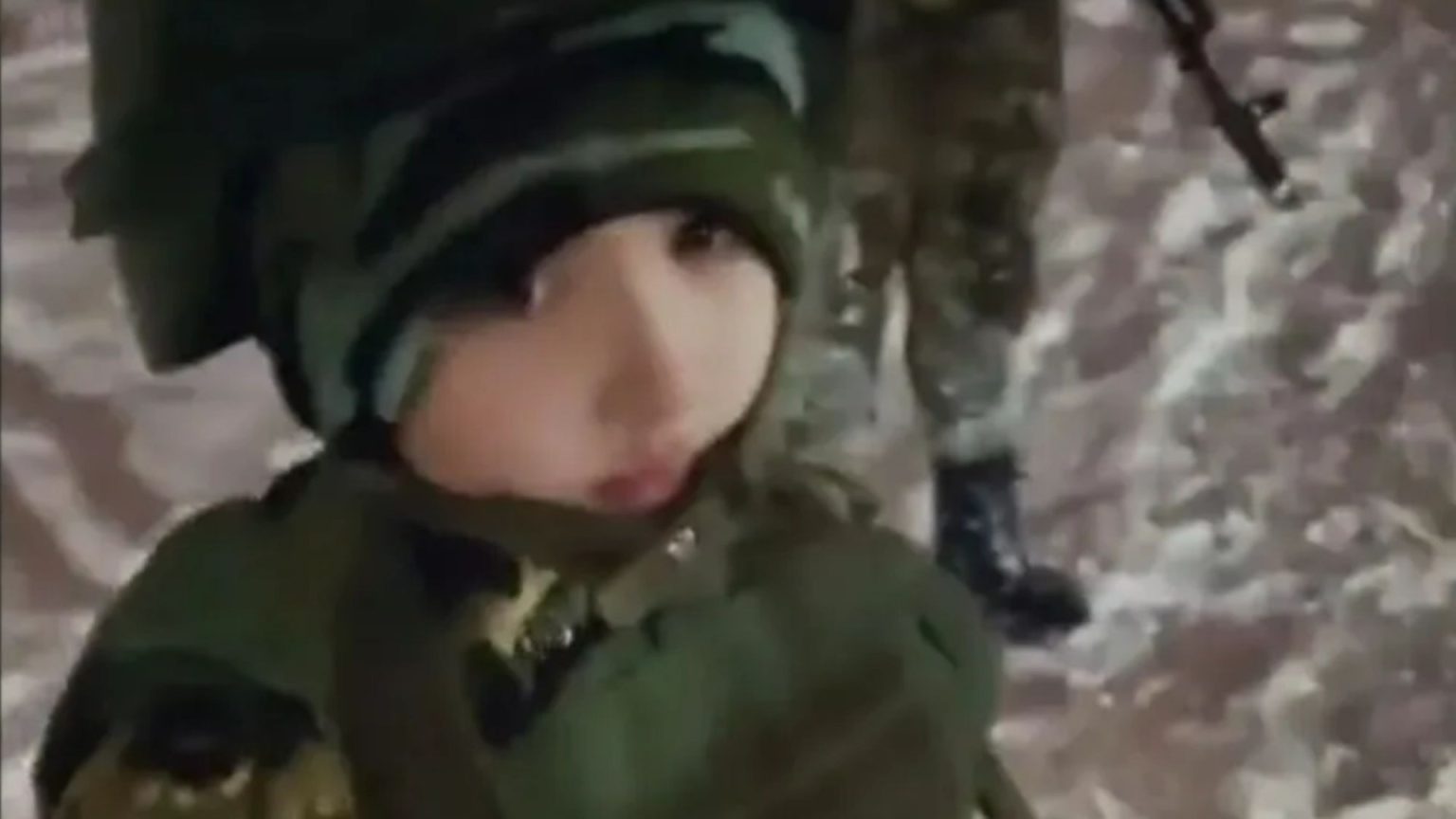The indoctrination of Russian children into a militaristic culture, with a specific focus on hostility towards Ukrainians, is raising serious concerns. Disturbing videos have emerged from Novosibirsk, Siberia, depicting young children engaged in simulated combat training. In one video, a child, approximately six years old and identified by the call sign "Falcon," is instructed by his trainer, Daniil Shargan, to "learn how to kill Ukrainians." Shargan, described as a veteran of the "Special Military Operation" with two tours of duty, is known for his aggressive training methods. The video shows older boys crawling through the snow with rifles, further emphasizing the militaristic nature of the training. Shargan reinforces the anti-Ukrainian sentiment, telling Falcon, "The Ukrainians can’t ****ing kill themselves. We have to do it."
Another video from Novosibirsk shows a group of boys undergoing similar training in a snow-covered playground. The instructor, using militaristic language, urges them to "kill the Ukrainians" and simulates the sounds of gunfire. These videos reveal a concerted effort to instill hostility and aggression towards Ukrainians in even the youngest members of Russian society. This indoctrination goes beyond mere military training and ventures into the realm of ideological conditioning, potentially fostering a generation imbued with animosity and prepared for conflict.
While these specific training sessions appear separate from the Yunarmia program, often likened to the Hitler Youth, they reflect a broader trend within Russia towards the militarization of youth. Yunarmia, with its 1.75 million members aged eight and older, provides military training to both boys and girls, further demonstrating the pervasive nature of this militaristic culture. The automatic registration of Moscow schoolchildren for military service through text messages, beginning at age 17, underscores the systemic integration of military preparedness into the lives of young Russians. This early exposure to military concepts and procedures normalizes the idea of service and prepares them for potential future involvement in conflicts.
The indoctrination extends beyond military training and encompasses educational settings. Russian kindergartens have implemented "conversations about the important," which are essentially patriotism lessons designed to instill a sense of duty to the Motherland. These lessons likely incorporate narratives that justify the current conflict in Ukraine and demonize the perceived enemy, further reinforcing the anti-Ukrainian sentiment. This multifaceted approach, combining militaristic training with ideological indoctrination, aims to cultivate a generation prepared and willing to serve the state’s interests, even at a young age.
These developments are unfolding against the backdrop of allegations of Russia’s abduction and indoctrination of Ukrainian children. The UK government has sanctioned individuals involved in these alleged kidnappings, highlighting the gravity of the situation. Thousands of Ukrainian children, including those with disabilities, are reportedly being taken to Russia, where they are subjected to "re-education" aimed at erasing their Ukrainian identity and instilling Russian values and loyalty. These accusations, if true, represent a disturbing attempt to manipulate vulnerable children and further escalate the tensions surrounding the conflict.
The combination of militaristic training for Russian children and the alleged abduction and indoctrination of Ukrainian children paints a grim picture of the ongoing conflict’s impact on the youngest generation. The systematic efforts to instill hostility and prepare children for conflict raise profound ethical questions and underscore the long-term consequences of the current geopolitical landscape. These actions not only perpetuate the cycle of violence but also create a generation scarred by conflict and indoctrinated with potentially dangerous ideologies. The international community must address these concerning developments to protect the well-being of children and prevent the further escalation of tensions. The future of these children and the broader stability of the region hang in the balance.


